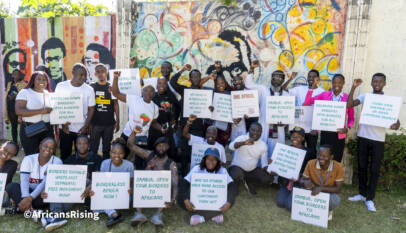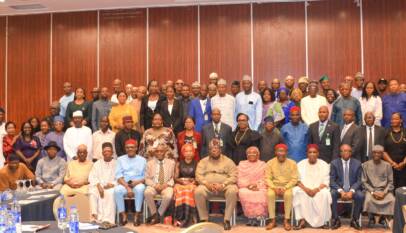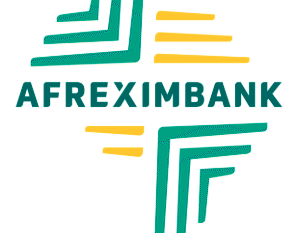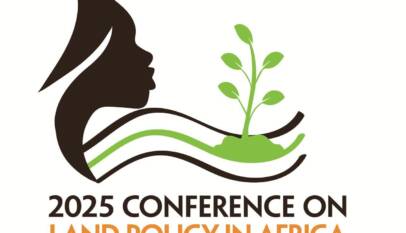EDITORIAL: A healthy nation is a wealthy nation

The healthy wellbeing of a people is doubtlessly a basic human right, guaranteed by the constitutions of their countries, and the healthy wellbeing of a people is hinged on the amounts of funds committed to public health by their national governments through their annual budgets
The healthy wellbeing of a people is doubtlessly a basic human right, guaranteed by the constitutions of their countries, and the healthy wellbeing of a people is evidently hinged on the amounts of funds committed to public health by their national governments through their annual budgets.
African Newspage believes the healthy wellbeing of a people is closely tied to the economic wellbeing of their country hence the saying, a healthy nation is a wealthy nation. Despite its strategic importance in socio-economic development of nations, public health is rarely prioritized when it comes to national governments’ spending in Africa; therefore, it continues to receive very inconsequential attention – when it comes to annual budgets and expenditures of countries on the continent.
Goal 3 of the United Nation’s Sustainable Development Goals, SDGs, desires health and well-being for all, at every stage of life, which underscores the strategic importance of public health in the global development agenda. Among others, SDG 3 is seeking to reduce the global maternal mortality ratio to less than 70 per 100 000 live births and end preventable deaths of newborns and under-fives children, by the year 2030.
It was as part of efforts to bridge the huge gap in African governments’ public health spending that the 2001 Abuja Declaration came into existence. The Abuja Declarations and Frameworks for Action on Roll Back Malaria was a pledge made by member states of the African Union during a special summit convened to specifically address the most critical African public health challenges at Abuja, the Nigerian capital, in April 2001.
In the declaration, AU member states pledged to increase their annual budgetary allocation to health sector to, at least, 15%, as well as requested for increase in donor funding for the public health sector in Africa. 15 years later, majority of African Union’s member states including Nigeria are yet to achieve the 15% benchmark as percentage allocation to public health in their annual budgets. It is only countries like Rwanda, Swaziland, Ethiopia, Malawi, Togo and the Central African Republic that have succeeded in putting their money where their mouth is, in respect of the Abuja Declaration.
African Newspage is disappointed that from between 2001 and 2016, Nigeria has never exceeded 6% in terms of its budgetary allocation to the public health sector – in relation to its total annual budget – which means the country is still far away from realizing the pledge contained in the Abuja Declaration. And other than the Abuja Declaration, the country is signatory to many other regional and international conventions on public health including the Maputo Plan of Action, MPoA.
The Maputo Plan of Action to curb maternal deaths in Africa was signed by ministers of health and delegates from 48 African countries in Maputo, the capital of Mozambique in September 2006, where they agreed unanimously that the right to health was under serious threat in Africa, and that poor sexual and reproductive health was a leading killer.
In 2014, Nigeria’s National Health Act was signed into law, by President Goodluck Jonathan, after over a decade of sustained advocacy by civic organizations. The Act is to provide “a framework for the regulation, development and management of a national health system and set standards for rendering health services in the federation; and for related matters.”
However, 2 years after it was signed into law, the Act, which provides for the establishment of a Basic Health Care Provision Fund, is yet to be domesticated by majority of the 36 states of the Nigerian federation and most of its provisions are yet to be implemented. According to the Act, the Fund is to be principally financed by 1% of the Consolidated Revenue Fund, CRF, of the Nigerian federation as well as grants from international donor partners.
Thus, based on the Act’s provision, the sum of over N38 billion (which was the equivalent of 1% of the Consolidated Revenue Fund, CRF, of the Federal Government of Nigeria) ought to have been an addition to the public health sector budget of the 2016 national budget, however, no such provision was made, which clearly puts to question Nigeria’s commitment to even its own domestic laws.
Examining the trend of health sector budgeting in Africa’s most populous state, one can clearly see that public health, which is supposed to be a basic human right of the people and the primary responsibility of the Nigerian government and which is also closely tied to the country’s health security and economic prosperity, has always received a “meager” share of Nigeria’s national budget.
In the last 10 years (2006 – 2016) public health spending in Nigeria has hovered between less than 4% to slightly over 6% of the total annual national budget with 2016 allocation to public health being slightly over 4%. This further casts a serious doubt on the Nigerian government’s commitment to the Abuja Declaration, signed in its own capital, at the end of a special summit of the then Organization of African Unity, OAU, convened by its own president, Olusegun Obasanjo.
“We commit ourselves to take all necessary measures to ensure that the needed measures are made available from all sources and that they are efficiently and effectively utilized. In addition, we pledge to set a target of allocating at least 15% of our annual budget to the improvement of the health sector,” says line 26 of the Abuja Declaration.
Sadly, as low as less than 10% of the “paltry” budgetary allocation to public health in Nigeria goes to capital expenditure while as high as 90% of the public health sector budget is being spent on recurrent expenditure; in the form of salaries, pensions and overhead costs – at the detriment of infrastructure in public health facilities.
As such, African Newspage believes whereas there is need for increase in budgetary allocation to public health, there is an even more urgent need for allocated funds to be spent appropriately – by prioritizing the capital expenditures of public health sector budgets as well as ensuring transparency and accountability in public health sector spending.
We are also of the belief that it is one thing for a huge sum of money to be allocated to public health in the annual national budget and entirely another thing for the same amount to be released to appropriate agencies for capital and recurrent expenditures, hence the need for timely release of public health funds as well as judicious utilization of the released funds.
As a result of the failure of the Nigerian government to commit to the Abuja Declaration, among many other regional and international conventions it has signed on to, over 576 women die per 100,000 live births in the country, according to the National Demographic Health Survey. Moreover, over 2,300 under-five children die daily in Nigeria from malnutrition and other childhood killer diseases like malaria, diarrhea and pneumonia, says UNICEF.














